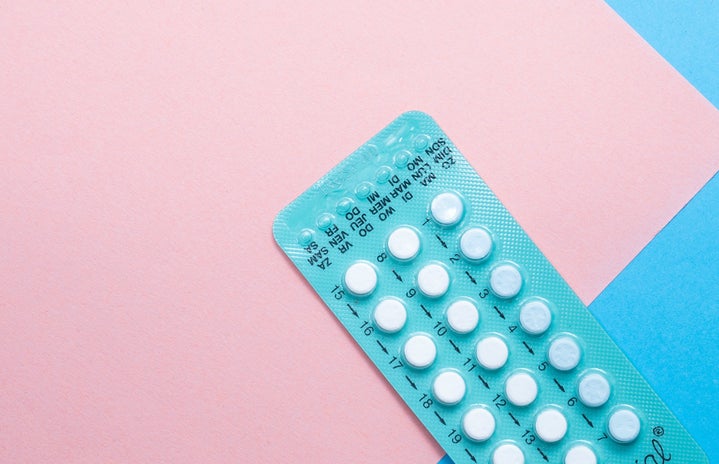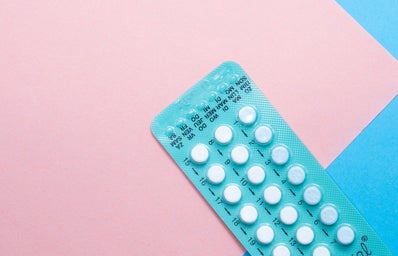For the longest time, I’ve struggled with my period. In the weeks leading up to it, I’d experience every side effect possible. Then, when it arrived, I had cramps so intense that the pain would radiate down my legs. Needless to say, I felt miserable. Why couldn’t I be one of those people who rarely got side effects? This question was on my mind every single month. In my moments of pain and frustration, I often wished that I could have no periods at all. Now, that wish is my reality. But that reality comes with a lot of conflicting feelings.
Within the past year, the word PMDD has been thrown around often by my doctors and I. Essentially, PMDD is a mental health disorder that manifests itself as a more severe form of PMS. During my menstrual cycle, I often felt panicked and out of control of my thoughts and moods. Despite already being diagnosed with anxiety, I knew something was still off. I’d cry and feel irritated for no reason at all, not feeling like myself. It was difficult knowing that I was behaving in irrational ways that I had no control over. The medications I was taking for my anxiety, which supposedly can help treat PMDD, weren’t helping my symptoms. This led me to try birth control.
When I had first discussed potentially having PMDD with a doctor prior to my first year of college, birth control pills had been offered to me as an option. At the time, I was too afraid that it would make my symptoms worse in such a time of a huge life transition. Yet, even after adjusting to college life, I knew I wasn’t satisfied with how I was feeling. I still remained weary of what would happen to my body when taking the pill, but I finally came to the conclusion that it was worth a try. After all, I could stop taking it and consult my doctor if I didn’t like how it made me feel. So, before returning to college this year, my doctor and I worked out a plan to start a birth control pill. This plan includes one very specific detail: I will take the pill continuously with no breaks, and will therefore have no period at all.
The purpose of continuously taking the pill is to combat any hormonal fluctuations that will trigger PMDD symptoms. I’d figured that this part of the plan would be recommended, yet, surprisingly, I wasn’t jumping for joy. My period, the one I’d known for many years, would be gone? I’d been so used to having it every month that I honestly couldn’t imagine what life would be like without it. It was difficult, yes, but part of me felt proud of myself for enduring it. In a way, my period had made me feel connected to my body, grounded in a sense of respect that it was functioning and healthy. Although not everyone who gets a period identifies as a woman, my period made me feel stereotypically womanly. Perhaps this is because of society’s focus on girls becoming women upon having their first period.
I’d been part of a larger whole of many people enduring the same thing every month. I thought about how I’d complain to friends about my period, or they’d complain about theirs, and sympathies would be shared. Of course, the excuse to lay down and eat a pint of Ben and Jerry’s wasn’t too bad either. All of these things came to mind when reviewing my treatment plan. I was supposed to be excited about this, yet I couldn’t be. It wasn’t the worst thing in the world, though, and I could feel some relief from knowing that my period wouldn’t return anytime soon. My emotions were in total conflict, and it was the first time I’d ever reflected on my period deeply beyond complaining. I’d never acknowledged that it truly did mean something to me, and that it was something I became accustomed to so easily.
To put it bluntly, periods can be really rough. However, everyone has different experiences with them. The narrative that the endurance of them is a quintessential experience in being a woman is just false, though. Yes, the female body is incredible in all that it can do, but periods don’t make someone more or less of a woman. I don’t need to be aware of my reproductive capabilities to feel more feminine. This is something I’ve come to acknowledge since starting continuous birth control. Now a few weeks into taking it, I can say that I’m happy with my decision so far. My monthly routine around my period may be gone, along with my period itself, but that doesn’t change a thing about who I am.




